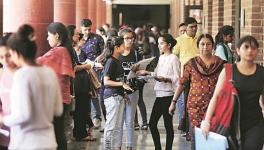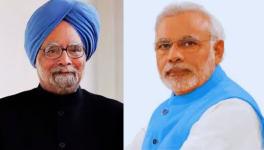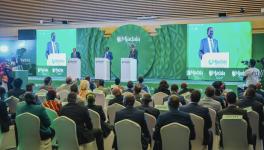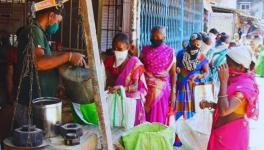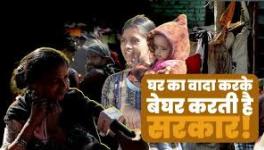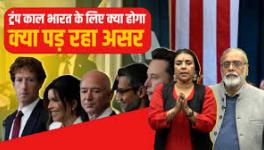Pakistan: Students Blame IMF for Privatisation of Education
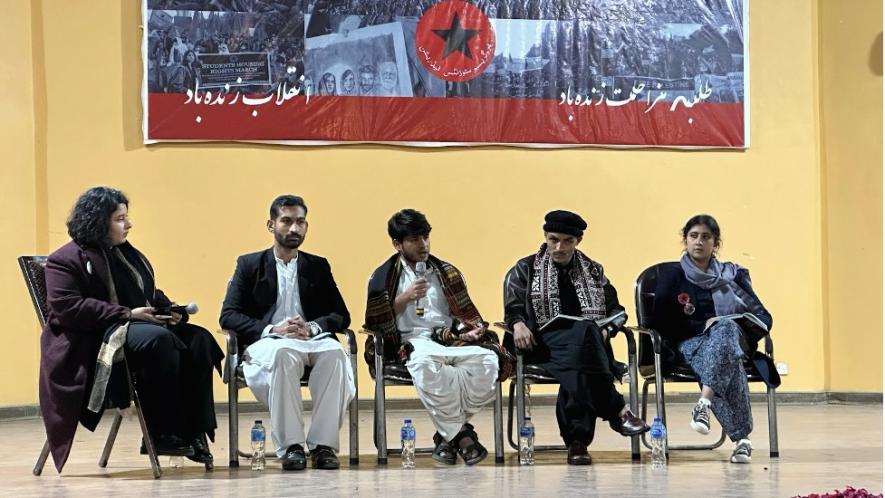
Panel discussion during the Student Action Conference in Islamabad. Photo: PrSF
On Sunday, December 22, the Progressive Students Federation (PrSF) in Pakistan organised a Student Action Conference in Islamabad. The Conference brought together hundreds of students from the capital city and nearby areas for a series of panel discussions, political theatre presentations, and revolutionary music.
Several student leaders from provinces such as Khyber Pakhtunkhwa and Balochistan addressed the gathering of the students talking about the exploitation and oppression their regions are facing under the present government led by Shahwaz Sharif. The conference resolved to fight for the basic rights of the students in the country and lead agitations on issues such as restoration of student unions, education for all, ending the privatization of education, increase in education budget and the demilitarisation of university campuses.
The panel “The Crisis of Education for Youth and Students in Pakistan” was led by Aasim Sajjad Akhtar, AH Nayyar and Mohsin Mudassar. In the discussion, they examined the impact of IMF-imposed privatisation in Pakistan’s education sector, arguing that such policies have left over 22 million children out of school, yearly cuts to the education budget, and historic fee hikes.
The austerity policies called for by the IMF in the country have seen significant cuts to the state spending on basic services which in turn has caused a deterioration on public education, healthcare, and housing for the majority of Pakistan’s working classes. The speakers condemned that successive governments have failed to create employment opportunities for the youth in the country which has caused an unprecedented unemployment crisis. Meanwhile, a significant part of Pakistan’s national budget is spent on militarisation and debt servicing. The neocolonial security state has therefore hindered any pro-people form of development, redistribution and democracy, the speakers highlighted.
The second panel discussion was on “The Role of Student Politics Amidst the Current Political Economic Crisis.” It featured student leaders such as Fatima Shahzad, Hussain Patman, Wajid Baloch, and Aftab Jatoi. The student leaders delved into the history of the student movement in the country and its role against the military regimes such as in the anti-Ayub Khan movement of 1968 which eventually led to the toppling of the military dictatorship. They also spoke about how the Democratic Students Federation (DSF), which was a student wing of the Communist Party of Pakistan (CPP) had to rechristen itself as National Students Federation (NSF) in order to avoid the effects of bans on the CPP. Despite the repression, the student movement was a key part in helping achieve Pakistan’s first popular elections in 1970 since the formation of the country in 1947.
Demand restoration of campus democracy
Following the 1970 elections, the progress of democracy in the county was marred by imperialist interventions which backed coups and crackdowns. Speakers reminded that it was due to “fear” of organizations like the NSF, which despite repression overwhelmingly won union elections in many campuses, which led to the ban on unions in 1984. The efforts and work of student groups like PrSF and others was highlighted as a necessary step in reviving Pakistan’s revolutionary tradition and ushering young people into a revival of student politics to confront the challenges of capitalist imperialism today. They emphasized the essential role of campus democracy in nurturing democracy in the country and called for the immediate demilitarization of the campus.
The conference was dotted with various cultural performances such as a play by the Red Ink group exploring the structural factors behind the mental health challenges faced by students which in some cases have resulted in suicide. In Pakistan, there have been many cases of student suicides for various reasons, all of which remain unaddressed.
A poster and literature stall was organized by Surkh Sawera, which contained work of revolutionary artists on revolutionary and national liberation struggles, as well as books by communist and anti-imperialist writers in local languages from publications like Naked Punch and Roshni Publications.
Amna Mawaz Khan performed a classical dance based upon expressing the resistance poetry of Mahmoud Darwish, in solidarity with the struggle of the Palestinian people amidst the Western imperialist backed genocide being carried out by Israel.
PrSF is the one of the largest left-wing student organizations in Pakistan, with over 35 district units throughout the country. PrSF was officially founded in 2017 and has been part of the mass movement for union restoration and student rights such as the Student Solidarity Marches from 2019-2021.
Courtesy: Peoples Dispatch
Get the latest reports & analysis with people's perspective on Protests, movements & deep analytical videos, discussions of the current affairs in your Telegram app. Subscribe to NewsClick's Telegram channel & get Real-Time updates on stories, as they get published on our website.










